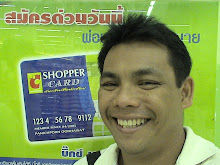As the election period begins on Sunday, January 10, the Commission on Elections
(Comelec) said Friday that candidates and voters alike should remember the “implications" that this period would entail.
Under Philippine laws, “election period" means 120 days before the actual date of the elections and 30 days after it. In the case of the 2010 polls, the election period would be from January 10 to June 9.
This 120-day election period contains the actual campaign period, which runs from Feb. 9 to May 8 for national candidates, and from March 26 to May 8 for local candidates.
No more guns and goons
According to Comelec commissioner Rene Sarmiento, the first thing people should remember during the election period is that it is also the duration for implementing a nationwide gun ban. [See: Comelec issues reso vs guns, goons on 2010 polls]
The gun ban applies to everyone except government security forces. The poll body has even issued Resolution 1814, which bans candidates and private individuals from carrying firearms and hiring bodyguards during the election period.
“Yan po ay ipagbabawal whether in parks, in boulevards, kesyo sa pribadong sasakyan, or public transport, yan po ay bawal na (It is prohibited to carry firearms whether in parks, boulevards, in private vehicles, or public transportation, that is not allowed)," said Sarmiento.
Aside from the regular firearms and deadly weapons, also covered by the ban are air guns and replications, as well as bladed instruments, hand grenades, and other explosives except for fireworks.
As an election offense, violating the gun ban entails a punishment of six months to one year imprisonment.
Automatically exempted from the gun ban are members of the Philippine National Police (PNP), the Armed Forces of the Philippines (AFP), and other law enforcement agencies, according to the resolution.
The poll body, however, said it will be allowing individuals with security threats to have escorts during the election period upon application and assessment. The escorts can come from the PNP, AFP, or the National Bureau of Investigation.
In a separate interview, Comelec spokesman James Jimenez told reporters that checkpoints will be set up during the election period to monitor ban violations.
No promotions and suspensions
Aside from guns and goons, Sarmiento said that the transfer of officers and employees of the civil service will also be prohibited during the election period.
He cited Resolution 8737 which says that there shall be no transfer of public officials or employees to other government agencies or to other divisions or field offices of their current agencies without permission from the Comelec.
“We all know that under the local government code, bawal na rin po yan (that is also not allowed)," he said.
National and local government offices will also not be allowed to appoint or hire new employees from March 26 to May 10, nor to create and fill in any new position.
“No government official shall promote or give any increase of salary or remuneration or privilege to any government official or employee, including those in government-owned or controlled corporations," said the resolution.
In addition, elected local officials may also not be suspended unless for the prosecution of charges related to the Anti-Graft and Corrupt Practices Act.
If there is an urgent need to fill a position, the government agency must inform the Comelec.
Sarmiento said that violation of this resolution would also constitute as an election offense. - Kimberly Jane T. Tan/JV, GMANews.TV
Subscribe to:
Post Comments (Atom)


No comments:
Post a Comment